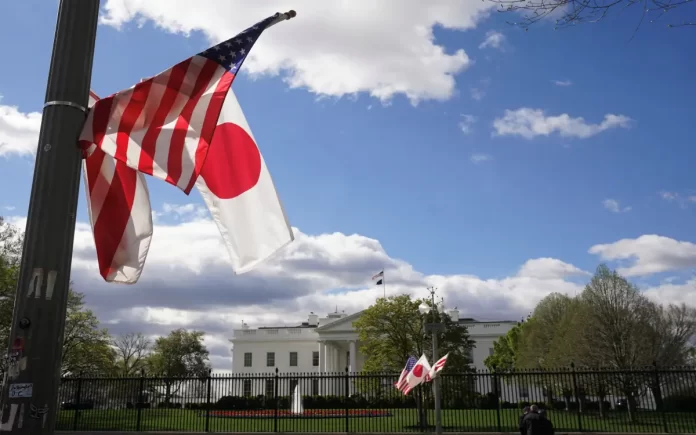President Joe Biden emphasized the strengthening of maritime and security ties with Japan and the Philippines, aiming to reassure allies amid growing concerns over China’s assertive actions in disputed waters. Speaking before a historic trilateral summit with Japanese Prime Minister Fumio Kishida and Philippines President Ferdinand Marcos Jr. at the White House, Biden reaffirmed the ironclad defence commitments of the United States to both nations. He emphasized that any attack on Philippine aircraft, vessels, or armed forces in the South China Sea would invoke the mutual defence treaty.
The leaders agreed to intensify military exercises, including plans for joint patrols by Philippine and Japanese Coast Guard members aboard a US Coast Guard vessel in the Indo-Pacific. Additionally, they announced plans for increased training exercises at sea.
Also Read: Japanese Astronaut to Make Landmark Lunar Landing in NASA’s Artemis Mission
Maritime security took precedence in the summit discussions following recent incidents, such as Chinese Coast Guard ships firing water cannons at a Filipino boat last month. The trilateral meeting followed joint military drills in the South China Sea involving the three countries and Australia.
Prime Minister Kishida echoed the importance of collaboration among like-minded countries to uphold a free and open international order based on the rule of law, emphasizing the need for a multi-layered effort amid the world’s complex crisis.
Biden and Kishida’s efforts to demonstrate unity with the Philippines are part of a broader US strategy to strengthen partnerships in the Indo-Pacific region, countering China’s growing military and economic influence. Discussions between Biden and Kishida highlighted concerns over China’s coercive tactics, with both leaders emphasizing the need for cooperation in technology, clean energy, and securing semiconductor supply chains.
The US and its allies aim to provide alternatives to Chinese investments, particularly through initiatives like the Belt and Road Initiative. With the Philippines, there is an opportunity for increased US investment and security cooperation under the Marcos administration, which is re-evaluating its relationship with China.
During an address to the US Congress, Prime Minister Kishida highlighted cases of economic coercion and debt-trap diplomacy, hinting at China’s practices. He also acknowledged ongoing US-Japan collaboration in emerging technologies.
President Marcos’ visit to Washington underscores the Philippines’ growing importance in US diplomatic efforts in Southeast Asia, focusing on economic growth, resilience, and climate adaptation.
While early-stage talks between the US and Manila regarding the development of the Philippines’ critical minerals industry are underway, no official announcement has been made yet. China’s significant presence in the Philippine mining industry adds complexity to these discussions.



